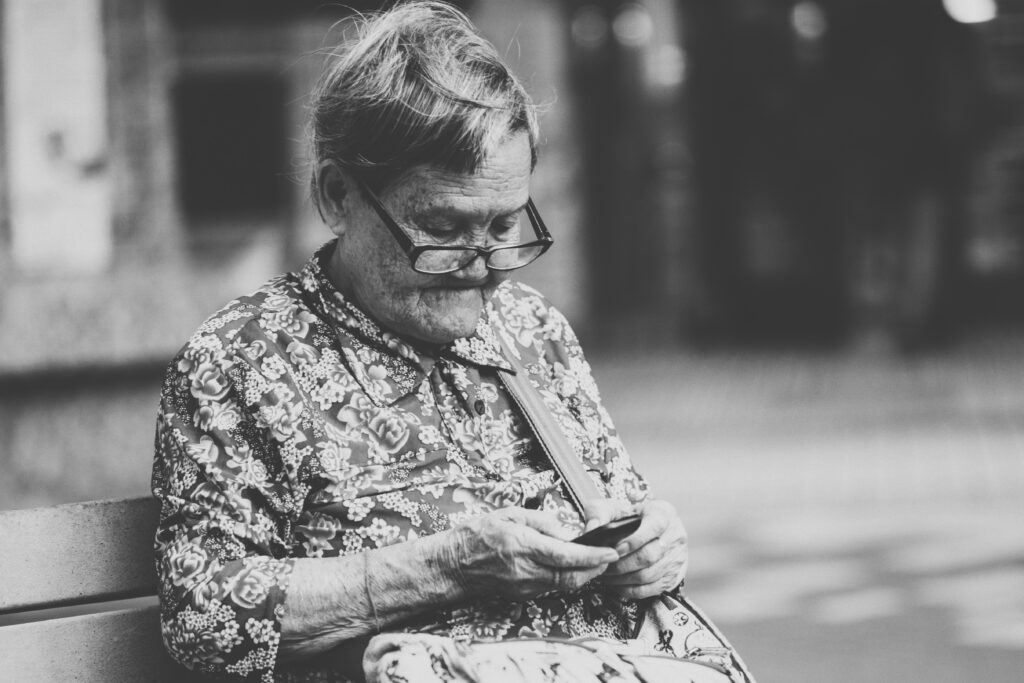At the National Alliance for Eating Disorders (“The Alliance”), our mission is to create better access to education, referrals, and care for anyone suffering from an eating disorder. Our helpline is a core aspect of how we enact this vision. The Alliance’s eating disorder helpline is a confidential resource that can help individuals, loved ones, and providers find support and treatment options for those experiencing an eating disorder (ED). Unlike other resources, our helpline is staffed by licensed and eating disorder-specialized therapists, who can provide referrals for all levels of eating disorder care. In a single conversation, you may find the first step to recovery, an empathetic listener, referrals to treatment options in your area, and more. Eating disorder helplines play an important role in supporting patients in their recovery journeys. Here, we go into detail about what a call with The Alliance’s eating disorder helpline is like and what they can offer a caller.
A Bit of Background on Eating Disorders
Eating disorders are serious mental health conditions that affect a person’s relationship with food. They can cause significant physical and emotional consequences, and without treatment, they can be life-threatening. The main types of eating disorders include anorexia nervosa, bulimia nervosa, binge-eating disorder, avoidant/restrictive food intake disorder (ARFID), and other specified feeding and eating disorders (OSFED). To learn more about common eating disorders, refer to our resource pages for each.
Note that eating disorders are complex conditions. Their signs and symptoms may vary, and an eating disorder may not always fit within the lines of one of those diagnoses. No matter the type, it’s essential to seek treatment if you suspect that you or someone you know may be struggling with an eating disorder or disordered eating.
What Can an Eating Disorder Helpline Do?
Working on recovery from an eating disorder can be difficult. The Alliance’s eating disorder helpline offers an accessible resource to help give you some guidance along the way. No matter where you are in your recovery journey, or even if you are the one struggling, you can call an eating disorder helpline. When you call, you talk to a real, licensed therapist who specializes in the treatment of eating disorders.
Guidance from Licensed Therapists
The Alliance’s helpline offers a supportive and judgment-free space where individuals can talk about their experiences and feelings, and receive empathy and validation. Additionally, The Alliance’s Referral Specialists can provide resources for education, including warning signs, different types of treatment options, and recovery strategies. Most importantly, the licensed therapists on the helplines can also offer referrals to treatment centers, support groups, therapists, dietitians, and other resources. These referrals are personalized based on an individual’s specific needs, such as co-occurring disorders, identity, and insurance coverage. Our helpline is unique in that callers actually speak with mental help professionals, as opposed to volunteers.
The aim of our eating disorder helpline is to offer support, guidance, and hope to individuals and loved ones affected by EDs, and to help them take the first steps toward recovery. It’s important to note that a helpline is not a substitute for professional help. Even though you are welcome to call back anytime, the Referral Specialists cannot provide you with ongoing support like an individual or family therapist can.
Who Calls The Alliance’s Helpline?
Our eating disorder helpline is for anyone struggling with an ED themselves and anyone whole may be concerned for a loved one. You don’t have to be in a state of crisis or have a plan for what to say. You don’t even have to have a diagnosis. The Alliance’s helpline is here for everyone. Unfortunately, eating disorder treatment is often less accessible or more stigmatized for people of color, members of the LGBTQ+ community, and other marginalized identities. At The Alliance, we try to make the system more equitable by matching callers with the resources that support their recovery and affirm their identities.
The mental health professionals that field calls on The Alliance’s helpline are here to support anyone and everyone. About 25% of calls to The Alliance’s helpline come from people who are struggling with an ED. Concerned family members and friends make up about 50% of the calls on our eating disorder helpline. They often call to get validation, learn about resources, and get guidance on how best to support their loved ones. The last quarter of calls come from schools, hospitals, and other organizations that call on behalf of an individual in need of support. Whether you are seeking support for yourself or for someone you care about, The Alliance’s helpline team is ready to listen with compassion and without judgment.
It’s important to note that our helpline is different from a hotline. Hotlines are crisis response resources. Often, they have 24/7 availability and offer emotional support to help the caller work through a particularly difficult moment. The Hopeline Network, for example, has a hotline catered to people living with eating disorders who may consider harming themselves. It is run by volunteers trained in crisis intervention.
In contrast, The Alliance’s helpline is run by professionals who are committed to connecting you to resources and care to support your recovery. The therapists on our helpline won’t just send you a page of resources. They will be your advocate in finding the referrals and care that best fit your or your loved one’s situation. Each caller is treated with the utmost care. The therapists won’t rest until they find treatment options that work for you, whether it’s connecting you with a support group, inpatient or outpatient treatment center, or a personal therapist in your area.
It’s Normal to Feel Nervous
If you’re feeling nervous about calling The Alliance’s eating disorder helpline, that’s understandable. The most common concerns about calling include feeling anxiety over what to say, a fear of being judged, or an expectation that the call won’t be helpful. We want to acknowledge that it can feel scary to pick up the phone.
That being said, The Alliance’s Referral Specialists are here to help! For many people, knowing what to expect can help foster a sense of ease. To give you an idea of what a helpline call is like, we go into detail about the experience in the next section.
What Happens When You Call an Eating Disorder Helpline?
The Alliance’s helpline offers a more personalized, compassionate, and professional experience than other eating disorder helplines. For starters, your call will quickly be answered by an Alliance staff member. While they may not be mental health professionals, this person can offer an empathetic and supportive introduction to the Referral team. These personalized touchpoints set The Alliances helpline apart, you won’t have to wade through an automated menu or wait on hold. This staff member will then redirect your call to one of the licensed counselors, social workers, and psychologists on the team. In the rare case that all the phone lines are full, the Alliance staff member will take down your contact information, and a licensed therapist will call you back within 24 hours.
Once you are on the phone with a therapist, you can share more about your situation. They will connect you with resources and information to support your recovery. Some calls may just last a few moments while others will be more in-depth conversations—it is completely up to the caller! The Alliance’s helpline gives personalized attention to each caller, spending as much or as little time as they need to help them feel understood and provide them with resources and support.
While the therapists can provide an empathetic listening ear, they are not in a position to give any medical advice or determine the level of care needed. However, they can use their expertise in the field to connect you with the most appropriate resources. With more information such as the eating disorder diagnosis, insurance coverage, gender, age, location, and treatment history, they can connect you with healthcare providers, treatment centers, therapists, and support groups in your area. This information also helps the team make personalized referrals that prioritize the goodness of fit, such as finding programs that also specialize in co-occurring diagnoses, such as Obsessive Compulsive Disorder (OCD) or Substance Use Disorders
Even if you are calling on behalf of someone, the therapist on the Alliance’s helpline can connect you with resources for your loved one, as well as resources dedicated to supporting the friends and families of individuals experiencing eating disorders. The helpline also offers education and general support to help family members understand how they can best support their loved ones.
Making Connections for Eating Disorder Recovery
When you call The Alliance’s eating disorder helpline, you can expect an overall tone of care, empathy, and emotional support. You will talk to real people who want to connect you with the best care for your situation. The calls are completely confidential, and you can remain anonymous. The professionals taking the calls are kind, patient, and determined to find you personalized eating disorder support. To reach the helpline for the National Alliance for Eating Disorders, you can call the toll-free number at (866)-662-1235 from 9:00-7:00 pm EST on weekdays. You can also reach out via email to referrals@allianceforeatingdisorders.com.



